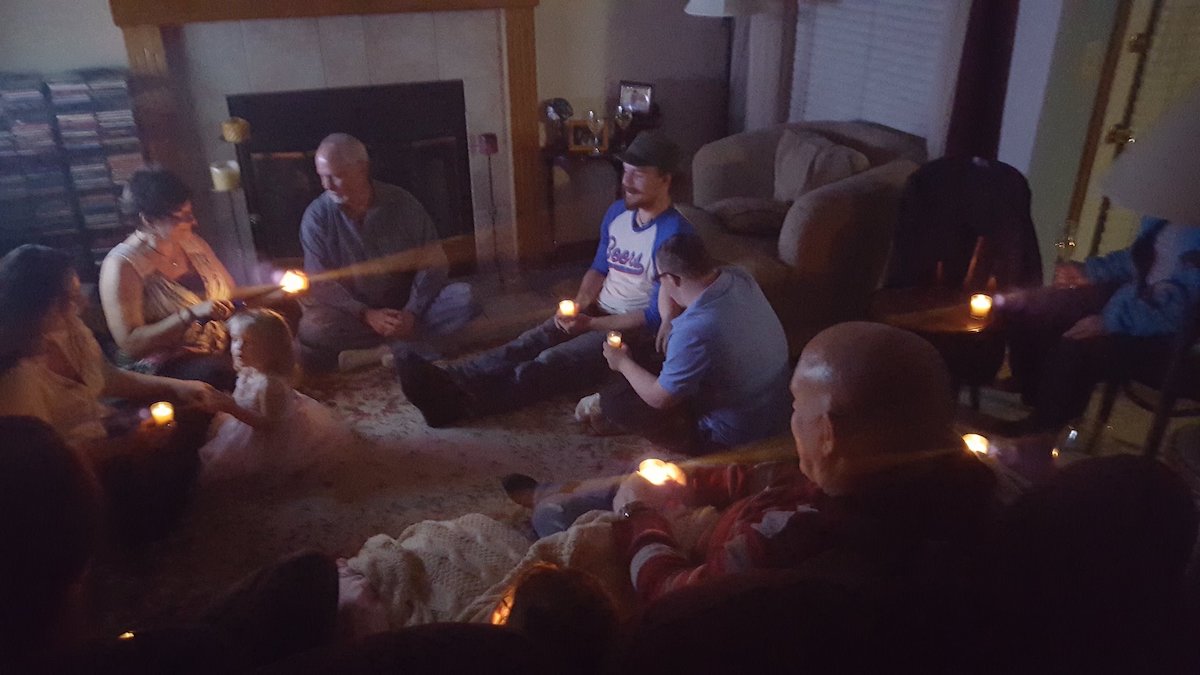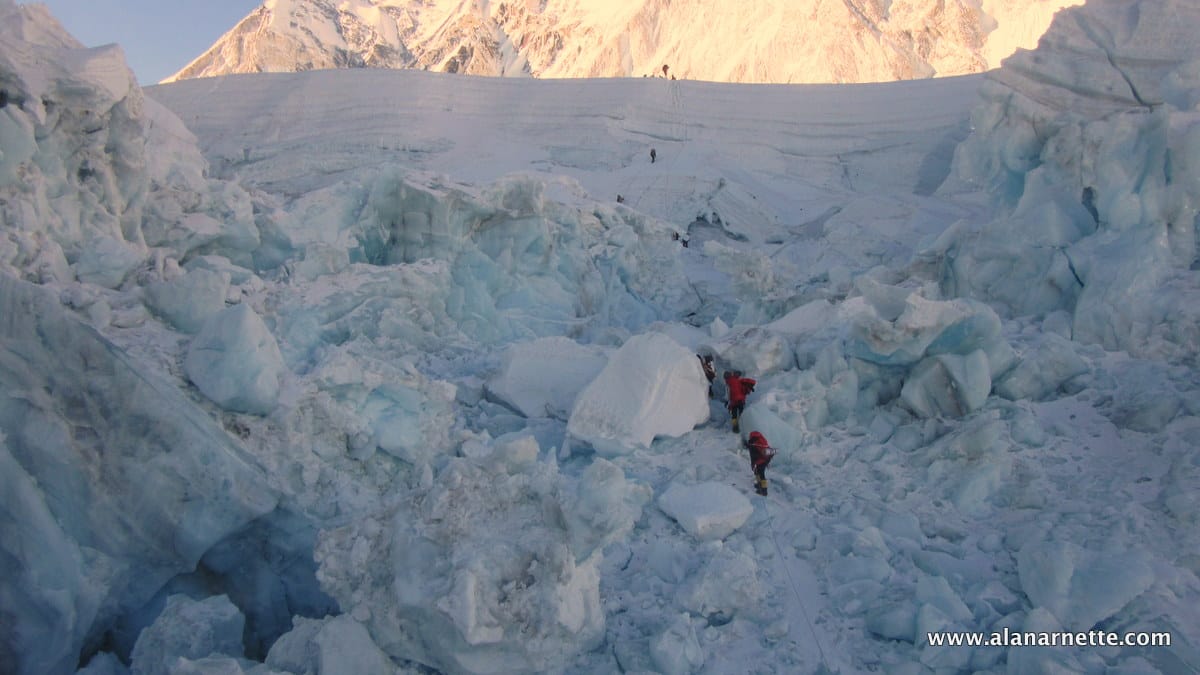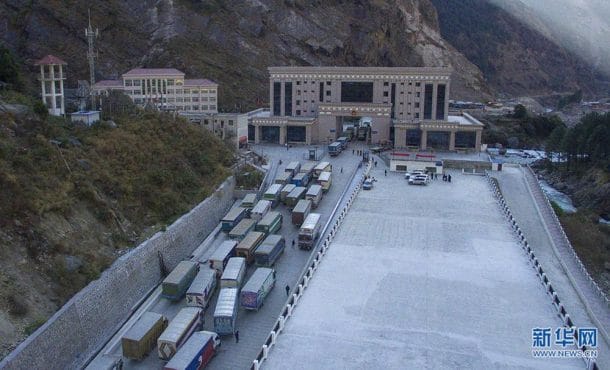Leaving home to climb Mt. Everest is no simple task. It’s not a business trip; it’s not a vacation; it’s something entirely different. While it may be your dream, for those left behind, it can be something altogether different. As we approach the end of March, scores of climbers are going through this process for Everest 2021.
It’s time for Everest climbers to get focused and serious about the last-minute preparations. Since their dream began, they wondered how this period would feel. For months, or even years, they saved money, bought gear, and trained their bodies, but a few crucial steps remain before boarding that plane for Kathmandu.
A longtime reader and climber preparing for Everest sent me this question last week: “How do you keep sleeping and maintain mental focus 20 days before leaving for Everest without stressing yourself out?’
My answer was:
Focus on “leaving nothing unsaid” with those who matter most in your life. Visualize being on the mountain with a positive outcome, review your gear using a mental walk-thru of the climb to make sure you have everything you need and want. Finally, surround yourself with positive people who have fun, laugh, and support you.
For this last step of prep, let’s take a closer look at three areas: Physical, Mental, and Emotional.
Physical
With days to go, this area becomes simple when compared to a year ago. Bottom line – don’t get sick, don’t get hurt. The time for pushing your limits has passed. Now is the time to let your body rest. Get as much sleep as you can. A night of restful sleep is when your body heals itself and restores. You will not sleep as well during your expedition as you do at home so take advantage of these last few nights.
Mental
Having the right attitude is crucial to a successful expedition. First, clear off all the items on your to-do list now, don’t wait until the last minute. If you have been putting off buying snacks, that last piece of gear, making sure your cell phone works with the NCELL network – get ‘er done. On the phone, make sure it’s unlocked from your carrier.
Now is the time to get everything at work in order. Train your replacement, talk to your boss, make sure there are no loose ends and no surprises that will haunt you during the climb. Two months is a long time away from work. If something blows up in week five, there is nothing you can do about it while on Everest, but you can make sure you have done all you can before you leave.
But don’t overdo it. Trust those you leave behind to do the right thing. If you don’t, you probably shouldn’t be going.
If you are a list person, make a list and celebrate checking off the items. If you keep everything in your head, consider using lists to clear your brain for more important subjects.
Having these monkeys on your shoulders only weighs you down and distracts you from what is most important, preparing yourself emotionally.
Emotional
Emotional is probably the most important of these three areas—my simple advice: leave nothing left unsaid.
I’ve written about this philosophy for my climbs and about Everest for over a decade, and it remains the best advice I can give anyone leaving for Everest.
Closure
I remember overhearing a teammate on an 8000-meter climb yelling at his soon-to-be ex-wife about divorce terms. Not only was he seriously upset and distracted, but it brought a wave of negativity over the entire camp.
Another teammate was intent on complaining about her spouse and how he never understood her. While she may have felt better, the negativity was unnecessary and not helpful to everyone else.
Everyone has emotional baggage they carry with them, but an Everest expedition is not the time or place to resolve them. Your Everest teammates are not your therapists.
This week is the time to begin to get closure. No, you cannot solve years-long issues in a few days, but you can try to reach an agreement and closure on a few crucial areas.
Family Meeting
Take time to have a family talk about your climb. Get everyone together in the same room and talk openly about the schedule, what to expect, when you will call or send an email. Set expectations, so you minimize surprises. And remember to tell everyone that no news is not bad news; it is just no news.
Ensure that everyone knows Everest Base Camp is remote and communications are spotty, regardless of what they may read. If voice-to-voice, live communications are vital to you, buy or rent a Thuraya or Iridium satellite phone. It is the only method you can 100% count on from anywhere on the mountain. Yes, it is expensive but hearing your loved one’s voice after a disaster like an avalanche or earthquake is beyond measure.
If you have parents who live far away, take time to call them and listen carefully to their fears. Talk them through everything. Of all people, they most likely don’t understand why you are climbing. This moment is not the time to argue; it is the time to listen and tell them that you understand that they don’t understand and that you love them.
Communications Blackout
Talk about your summit night, when you will leave. Calculate the time difference, so they are clear if you say you are leaving High Camp at 10:00 pm, what time is that back home. Talk about it may take 12 to 20 hours before they might hear anything. And talk about your guide or logistics service and what they post on the web. Most importantly, talk about the lack of communication that always occurs during the summit push.
If you use a GPS tracker set expectations that batteries go dead, the devices are not 100% accurate, so again, don’t jump to a conclusion when something looks odd, for example, your position appears hundreds of miles from your last spot. Talk about what they might read on the Internet and how the press loves to post stories about climbers in trouble and death on the mountain. Set up a support system if something does go wrong. It is OK to talk about problems and what to do.
Who to Call?
Make sure your spouse, partner, significant-other knows who to contact in case of an emergency. If you are going with a well-established western company, they will probably provide a contact available 24 hours a day. Clearly understand how to contact your family in case of an emergency, especially if you are climbing with a small outfit or one of the Sherpa-based guide outfits.
Emergency communication is the one area to make sure there is no confusion. If you have an email or a phone number for your guide service, ask how often it is checked and by whom. You might be surprised to learn that the same person you are climbing with is the one chartered with answering the emergency phone. So if you are both at Camp 3, that means no one will answer the phone or respond to that email.
How Much Information?
If someone close to you is currently ill, be clear on what information you would like to receive if their situation takes a turn for the worse. Please don’t leave it up to those at home to guess. Talk it over now, face to face.
But it gets more complicated. Ensure your “person” knows what your choice would be if something happens to you on the mountain. If you die, do you want your body returned home, if possible, and can you afford it? If not, are you comfortable being left on the mountain forever? Are your loved ones comfortable with your choice?
Have the Talk
But this is the essential emotional step of all. Have a conversation with the one person in your life that matters the most to you. Be open, candid, honest. Tell them how you feel. Share with them your dreams, your hopes. Carefully listen as they tell you their fears, what will keep them up at night.
While you may be on the mountain, they are climbing with you each step of the way back home. You have the advantage of knowing what is going on, they can only guess, and sometimes they will guess wrong.
Often there are no answers to these fears, these dreams, but talking about them together will help you feel closer when you are lying in the tent at Camp 4, with the wind howling and the temperature dropping. You will remember that conversation forever.
Surprise your climber and your loved one with a short video message left on their phone that they can watch before heading toward the top of the world. Your confidence and energy will touch them in ways you never imagined.
And for those left at home, they will draw on that conversation as they struggle to go to bed on your summit night. It might have been days since they last heard from you, and this conversation will be the strength from which they draw, the comfort as they replay your voice in their mind.
Climbing Everest requires a team, and part of your team is at home.
Leave nothing left unsaid.
Follow Along!
I have begun to create my annual team location table and tracking climber’s blogs (see sidebar). If you have a team not listed, please let me know, and I will add them if I can track them. If you prefer not to be mentioned, please contact me.
I am posting background articles and interviews between now and early April when the teams arrive at the base camps. If you would like to see anything special this year, post a comment or drop me an email.
Here’s to a safe season for everyone on the Big Hill!
Climb On!
Alan
Memories are Everything
The Podcast on alanarnette.com
You can listen to #everest2021 podcasts on Spotify, Apple Podcast, Breaker, Google Podcasts, Pocket Casts, RadioPublic, Anchor, and more. Just search for “alan arnette” on your favorite podcast platform.





22 thoughts on “Everest 2021: Leaving Nothing Unsaid”
Thanks Alan, yes I know Jessica does. She is aiming to be the first women every to complete From Pond to Peak, she has already swan the channel so I am hoping Kami helps her up and back down.
Sorry Alan, found out Jessica is climbing with Climbing the 7 Summits. Will be following all you post. Kind regards Lyn
Hi Alan. I have a friend, Jessica Hepburn who is climbing with a wider team but on a 121 basis with your previous Sherpa, Kami Sherpa. How do I follow their journey please? Kind regards Lyn
Does she understand how fortunate she is to be climbing with Kami? 🙂 🙂 He’s with Mike Hammil’s Climbing the Seven Summits company and you can find him on FB and his website where he will post updates. Best of luck to all.
I met Jessica on a winter course in Scotland the other year, interesting story and charity if I remember.
Thanks Alan for an excellent synopsis. I found it very positive and practical. I’m not a climber but they were words of wisdom that I enjoyed reading.
Keep the posts coming for this Everest climbing season!
Great post Alan, an emotional time no doubt.
I felt emotional reading it!!
I agree with you that people need to consider their responsibility to their family, before such an undertaking. In most circumstances, a spouse would be able to carry on and take care of themselves if the worst happened. Minor children are different–it would be very irresponsible for 2 parents of minor children to both decide to climb together. In a case where a spouse would not be able to care for themselves or the minor children (like if the spouse had physical health issues,) I think it would be irresponsible for such a climb. I would feel the same about any unnecessarily risky activity. Fortunately, I think in most cases, climbers do consider their spouse and children before going on a risky climb such as Everest.
Alan, you are describing a healthy approach to climbing Everest (and other “trophy” peaks) but there is a small subset of people whose obsession with reaching the summit endangers themselves and others. Perhaps they are not climbing as therapy, but they clearly need therapy. I recently watched the excellent documentary “The Fatal Game”, which was intended to document a successful climb but ended up documenting an obsessive climber’s death, and how that endangered the guide/friend who was with him. It was very obvious from the pre-climb interviews that this climber needed serious therapy before approaching Everest again. Or better, in place of another attempt at the summit. This climber might be the extreme, but the more commercial operators lead the unqualified to sign up, without serious screening, this is a danger. And it is not only the unqualified who fall to these unhealthy obsessions; there are professional and celebrated climbers who ultimately let their obsession to “summit or die” lead to bad decisions on the mountain. Read any account of high peak disasters, and these people are pretty obvious, and are often identified as a danger before the trouble even starts.
And a note of appreciation: your blog and your video interviews are very insightful and your coverage is balanced and insightful. I enjoyed the interviews you contributed to CNA (Singapore Public Broadcast) documentary.
‘What is the accomplishment?’ Does everything have to be ‘outcome based’? Does everything have to be measured by dubious entities like ‘sport psychologists’? Like Alan says, people do it for their own reasons. There is no ‘mind set.’ Accept that they have a different agenda to you and enjoy the adventure!
Is Brice gonna have teams on the mountain this year?
Russ sold his company but the new owner is still operating under the Himalayan Experience aka Himex name.
You are amazing in that you always provide powerful messages!
Thanks Dana
I love this advice, it’s so clear and also can be applied to so many other circumstances. So many times, people don’t want to discuss bad outcomes for fear it will “jinx” the situation, and so they miss out on an opportunity for honesty. Thanks as always for your amazing posts, I love reading them although I will never even attempt to make a climb like this!
Thanks Olivia
If it’s not a business trip or a vacation what does one call someone spending thousands of dollars, be away from home and family for months at a time to climb a mountain, that is life threatening and thousands of people have done before and dozens of people have perished attempting to climb the mountain. What is the accomplishment? Sport psychologists say that if one doesn’t feel good about themselves climbing a mountain won’t change that regardless how high. So what is it?
What I’ve seen over decades of climbing is that each person’s reason is unique and personal and no one needs to explain or justify their reason to anyone.
You are absolutely right but when it involves a spouse and maybe dependents then it’s a different situation. We all make sacrifices when we commit to other people in most cases. The mind set is almost beyond selfish. In my opinion.
It’s interesting David that you seem to equate climbing with an individual’s “feeling about themself.” Climbing is a sport that people do for their own reasons, as I said. If they feel something, perhaps it’s confidence, satisfaction, growth, teamwork, comradery, new friends, a different world-view, accomplishment. If the result is that a person returns home a better version of themselves, I think that’s great; but I don’t that is most people’s primary objective. In my experience, I have never seen someone climb as therapy with the exception of “Wounded Warriors” which is very different. As for spouses, again in my experience, the vast majority of partners support their loved one’s dreams. But as you say, it’s your opinion. Thanks for the comment.
Alan one last comment. Thank you for posting my comments. I think your blog is a valuable tool for the climbing committee. Mount Everest is an iconic mountain that should be respected and cared for. I can’t help thinking about the tons of garbage left on the mountain from tents, poles, oxygen bottles, sleeping bags, cookies utensils, medical paraphernalia, food wrappers, human feces and toilet paper not to mention the odd dead body. I thought we learned in kindergarten to clean up after ourselves. How does that show respect for the mountain?
It doesn’t.
Comments are closed.